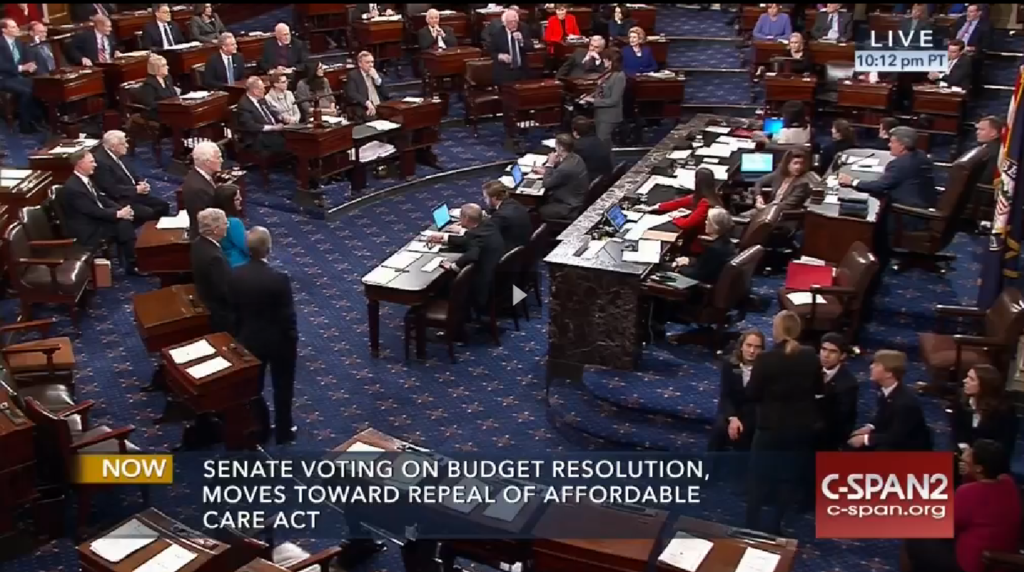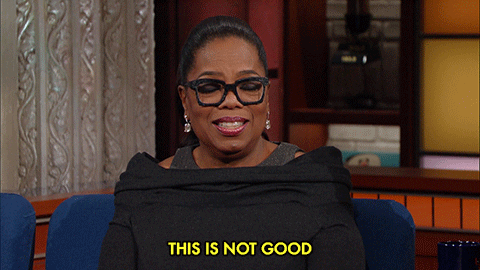Abortion rights, women of color, and LGBTQIA+ people are under attack. Pledge to join us in fighting for gender justice.
The Worst Throwback Thursday Ever

As some members in Congress are rushing to repeal the Affordable Care Act (ACA), also known as Obamacare, they are failing to address the real-world impact repeal will have on real people. So what are the facts that they want us to ignore? What would ACA repeal actually mean?
For women, we know what the world was like without the ACA—and repeal will throw us back to that time—a time where insurance companies wrote their own rules, indiscriminately charging women more than men for health coverage, denying women coverage of critical services, and imposing high costs that effectively deterred women from accessing care.
This blog is the first in a series of “Worst Throwback Thursdays (TBTs) Ever” that will break-down the real-world effects that repeal of the ACA will have on women’s health and economic security.
We are starting this #WorstTBTEver blog series by talking about Medicaid expansion because it’s an often overlooked part of the ACA. Many think the ACA is just about improving private insurance, but through Medicaid expansion, it made a major improvement in public insurance too. Medicaid expansion and the progress it’s made for women’s health and economic security don’t get the love and attention they deserve. So let’s give it some.
What is Medicaid expansion?
Before the ACA, a population of lower-income individuals who did not qualify for Medicaid but could not afford private coverage was in dire need of affordable health coverage in order to access the care they needed to get and stay healthy. An important provision of the ACA allowed states to expand their Medicaid program to cover these people.
The technical details: states can expand Medicaid coverage to individuals who don’t qualify for traditional Medicaid but have incomes low enough that they can’t afford private insurance, like families of four who earn $33,465 or less per year. Although the ACA envisioned this happening in every state, a 2012 Supreme Court decision allowed states to decide whether or not to expand Medicaid in their state. So far, 32 states including DC have expanded Medicaid.
What is the impact of Medicaid expansion?
Medicaid expansion has been huge for women, who rely more heavily on Medicaid coverage than men. Seventeen percent of adult women ages 18 to 64 are currently enrolled in Medicaid. And states expanding Medicaid have seen large increases in Medicaid enrollment – between 2013 and 2015, over 3 million women in Medicaid expansion states gained health insurance coverage either through traditional Medicaid or through the expansion. In non-expansion states, fewer than 400,000 women have gained Medicaid coverage during that same period.
These women who now have Medicaid coverage are getting a comprehensive range of services that address major health needs throughout their lives, including birth control, maternity care, prescription drugs, hospitalizations, and long-term care. A growing body of research has demonstrated how important Medicaid coverage is to enrollees’ access to care, overall health, and mortality rates.
At the same time, Medicaid has played a critically important role in advancing women’s economic security. It keeps women and their families from medical debt and bankruptcy. By providing health coverage to women and their families that is not tied to employment, Medicaid allows women to seek positions that may offer higher wages or better opportunities, and it also has improved the economic security of future generations. Medicaid’s coverage of birth control allows women to determine whether and when to start a family, expanding their educational and career opportunities. And Medicaid payments to health care providers directly support women’s jobs.
Because of all these benefits, Medicaid expansion is a bipartisan issue— with Medicaid expansion happening in states like Ohio (where over 200,000 women have gained Medicaid coverage between 2013 and 2015), Pennsylvania (over 113,000 women), and Nevada (nearly 75,000 women).

What will happen if the ACA is repealed?
Repealing Medicaid expansion will throw people back to 2010. Those who have gained health insurance coverage through the Medicaid expansion will lose it and without it, their health and economic security will be put at risk. Lower-income uninsured women are more likely to go without care because of cost, are less likely to have a regular source of care, and utilize preventive services at lower rates than low-income women with health insurance.
But repealing Medicaid expansion doesn’t just threaten the individuals who are enrolled in Medicaid. If Medicaid expansion is repealed, it would lead to the loss of an estimated 1.5 million jobs in 2019. This includes jobs in the health care industry, where women comprise a disproportionate share of workers. For example, women comprise nearly 77 percent of hospital employees. Loss of Medicaid expansion will also hurt states’ economies. The job loss and damage to the economy would happen even in the states that chose not to expand Medicaid.
Repeal of Medicaid expansion would hurt all of us.

Medicaid Expansion has been an important part of promoting health and economic security for more women and families. Repealing the Medicaid expansion would make this Worst Throwback Thursday Ever a reality. And we can’t have that. Women need health insurance. Women need jobs. Women need Medicaid expansion. Women need the ACA.




